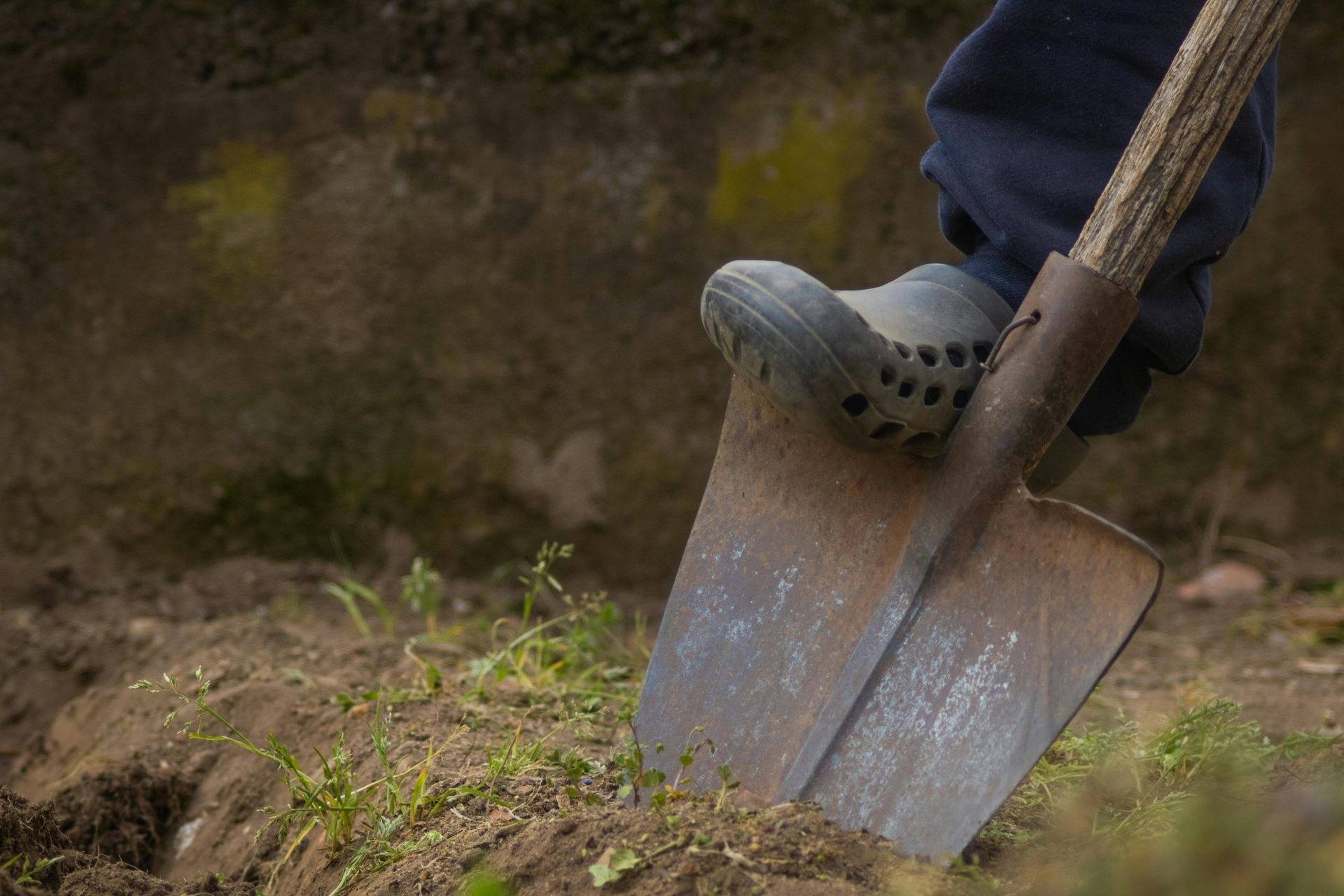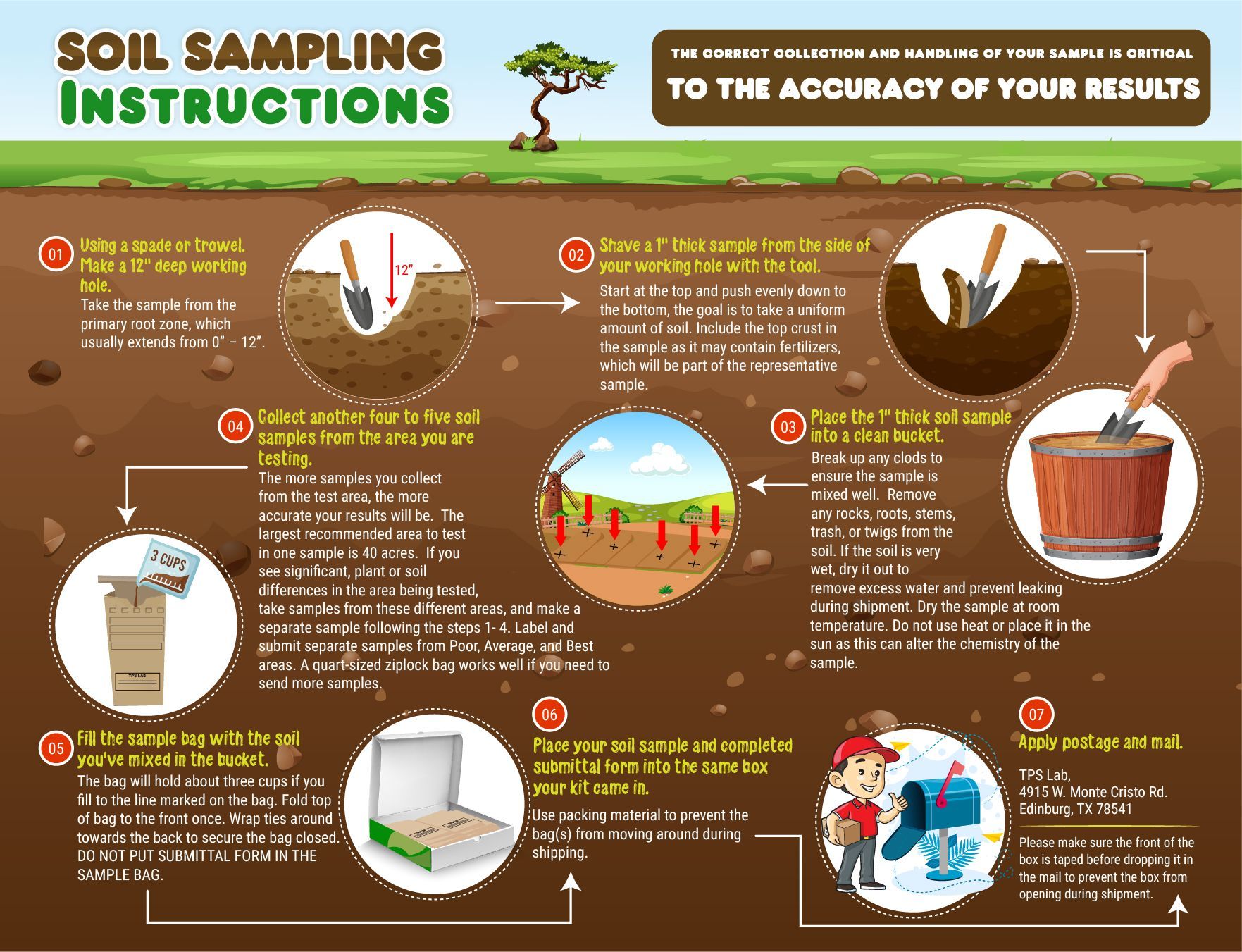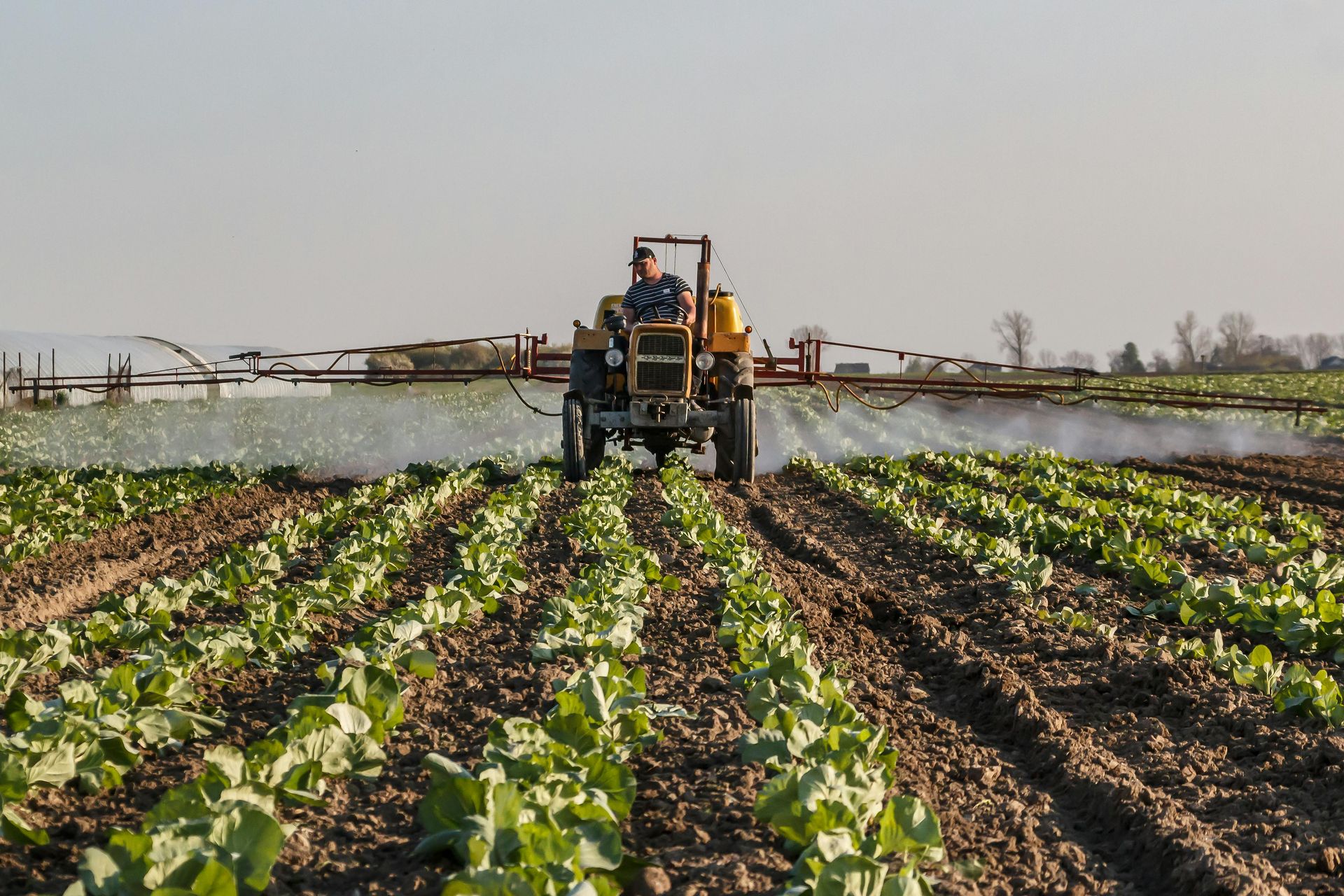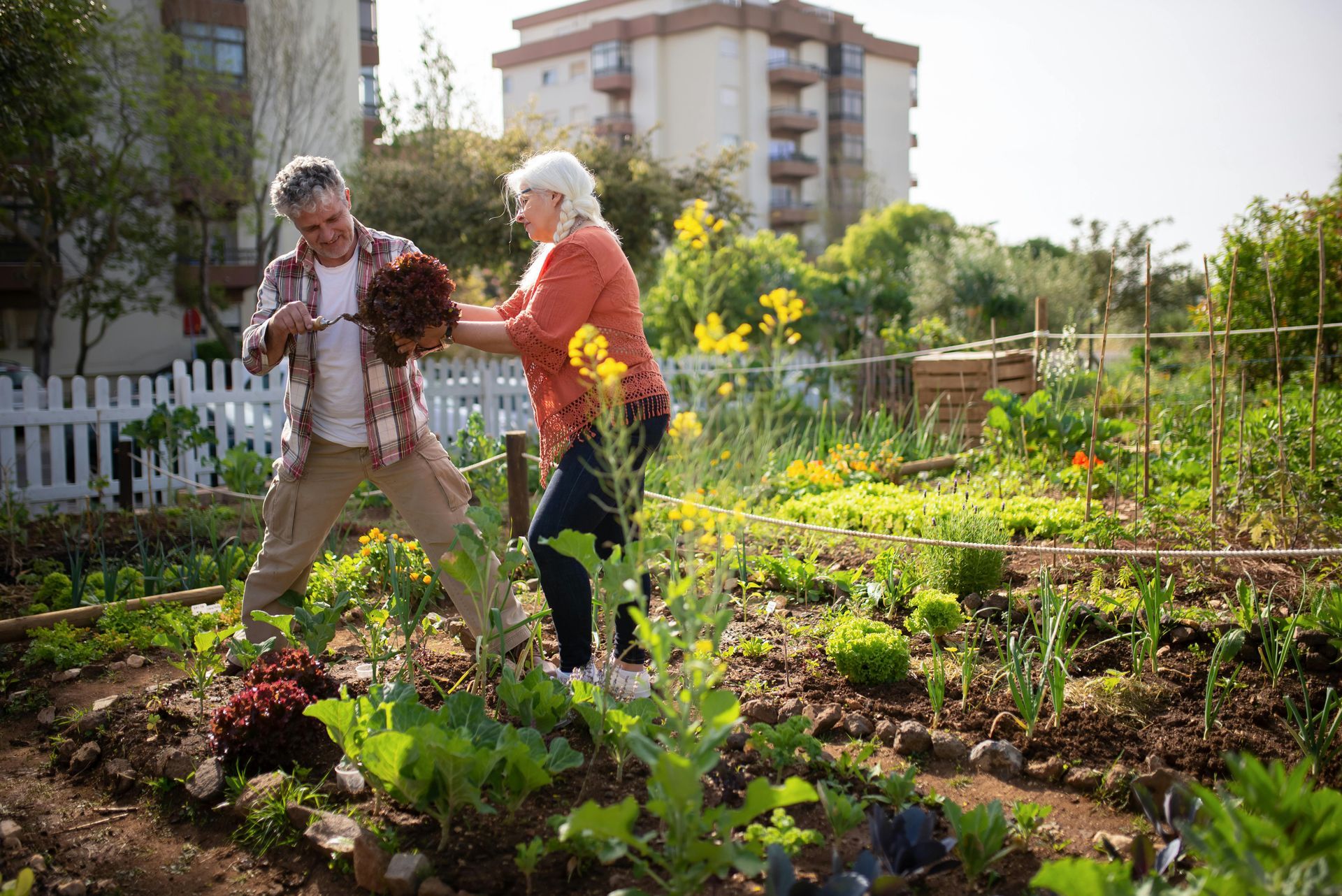Optimizing Your Soil for Winter
A Comprehensive Guide

Winter is a crucial time for soil health management, providing an opportunity to address challenges and prepare for a successful spring growing season. Whether you’re cultivating a large commercial farm or a backyard garden, taking the right steps to optimize your soil can make all the difference. Soil testing plays a pivotal role in this process, helping identify nutrient imbalances, pH levels, and potential contaminants.
Since 1938, our Texas-based agricultural testing lab has been assisting growers worldwide. With comprehensive services tailored to the needs of diverse soils and climates, we’re here to support your soil health journey.
Why Winter Soil Preparation is Crucial
Winter brings unique challenges to soil, including nutrient leaching, compaction, and erosion. Proactively preparing your soil during this dormant period helps retain essential nutrients, prevents degradation, and improves soil structure. Proper winter soil care ensures a healthier, more productive foundation for spring planting.
Assessing Soil Health Before Winter
Importance of Soil Testing
Before you begin winter preparations, understanding the current state of your soil is essential. Soil testing provides valuable insights into its pH, fertility, and the presence of contaminants such as heavy metals. These insights guide your approach to soil amendments and fertility management.
Our lab offers a range of services, including agricultural soil testing, garden soil analysis, and heavy metal testing. By partnering with us, you can identify specific issues and develop targeted solutions to improve your soil’s health.
Common Soil Issues Found During Testing
Some common issues that arise during soil testing include:
- Nutrient deficiencies (e.g., nitrogen, potassium, or phosphorus)
- Imbalanced pH levels, which can hinder nutrient absorption
- Contaminants like heavy metals that may affect crop safety
By addressing these issues during winter, you can ensure optimal growing conditions come spring.
Tools for Soil Sampling
Using the right tools ensures accurate soil sampling. Tools such as soil sample probes and soil testers are essential for collecting representative samples. Our lab provides guidelines and support to help clients worldwide collect and submit high-quality samples for analysis.
Steps to Optimize Soil for Winter
Fertilizer and Amendments
Winter is an ideal time to apply fertilizers and amendments tailored to your soil’s needs. Based on your soil test results, you can:
- Add lime to correct soil acidity.
- Apply organic matter like compost to boost nutrient content and improve soil structure.
- Use phosphorus and potassium fertilizers for long-term nutrient availability.
Properly balanced fertilizers enhance soil fertility and prepare your fields, gardens, or lawns for a thriving growing season.
Cover Crops and Mulching
Planting cover crops such as clover, rye, or vetch protects soil during the colder months. These crops reduce erosion, fix nitrogen, and improve organic matter when tilled into the soil in spring. Similarly, applying mulch insulates the soil, reduces compaction, and conserves moisture.
For those unfamiliar with cover crops, our agricultural consulting services can recommend the best options based on your soil type and goals.
Soil Structure Management
Soil compaction can worsen over winter due to heavy precipitation and freezing conditions. To combat this:
- Avoid heavy machinery use when the ground is wet or frozen.
- Incorporate organic amendments to improve aeration.
- Consider aerating compacted soil areas before winter begins.
Our team can analyze soil compaction issues and suggest customized solutions for your unique environment.
How Agricultural Testing Enhances Winter Preparation
Agricultural Consulting Services
With so many options for soil care, professional agricultural consulting ensures you’re on the right track. Whether you’re optimizing large-scale operations or improving backyard gardens, our experts provide tailored recommendations to maximize results.
Plant Sap Testing
Plant sap testing is a powerful tool for monitoring nutrient uptake and crop health. While it’s often used during the growing season, the data can help refine your soil preparation strategy for winter and beyond.
Soil Health Testing for Future Planning
Soil health isn’t just about the current season—it’s a long-term investment. Comprehensive soil testing allows you to track changes over time, ensuring that your land remains fertile and productive. By partnering with us, you gain access to detailed insights for sustainable soil management.
Why Choose Professional Soil Testing for Your Needs
Preparing your soil for winter doesn’t have to be a guessing game. Professional soil testing provides precise data to inform your decisions. Here’s why it’s worth considering:
- Customized Recommendations: Lab results provide targeted advice for fertilizers, amendments, and soil treatments.
- Accurate Diagnostics: Identify issues like heavy metal contamination or nutrient imbalances that may not be visible to the naked eye.
- Global Expertise: Our lab works with clients worldwide, offering insights tailored to diverse soil types and climates.
With over 85 years of experience, our agricultural testing lab delivers trusted results to growers of all sizes.

A Step-by-Step Guide to Submitting a Soil Sample
Submitting a soil sample for testing is straightforward, and accurate sampling is key to obtaining reliable results. Follow these steps:
- Gather Tools: Use a soil sample probe or a clean garden trowel and a bucket.
- Collect Samples: Take multiple samples from the area you wish to test, mixing them thoroughly in the bucket.
- Prepare the Sample: Fill a clean plastic bag or container with the mixed soil.
- Label Clearly: Include information such as the location, crop type, and any known soil issues.
- Ship to Our Lab: Contact us for shipping guidelines and testing forms.
Our lab will analyze the sample and provide detailed results, along with actionable recommendations.
Winter is a critical time to invest in your soil’s health. By addressing issues now, you set the stage for a productive growing season in the spring. From soil testing and analysis to expert consulting, our lab is here to help you optimize your soil and achieve your agricultural goals.
Don’t wait—contact us today to schedule your soil test and start preparing for a successful spring!
FAQs
1. Why is soil testing important before winter?
Soil testing helps identify nutrient imbalances, pH levels, and potential contaminants. Addressing these issues before winter ensures your soil is well-prepared for spring planting, leading to healthier crops and improved yields.
2. What are the best cover crops for winter soil protection?
Popular cover crops include clover, rye, vetch, and winter wheat. These crops help reduce erosion, fix nitrogen, and improve organic matter, making them ideal for protecting and enriching your soil during the off-season.
3. How often should I test my soil?
For most applications, testing soil every 1-3 years is recommended. However, if you’re dealing with persistent issues or making significant changes to your soil management practices, testing annually can provide better insights.
4. Can I use organic matter as a winter soil amendment?
Absolutely! Adding compost or well-rotted manure in late fall enriches the soil with nutrients and improves its structure. These organic amendments break down over winter, enhancing soil fertility for the next growing season.
5. How does your lab assist with global soil testing needs?
Our lab works with clients worldwide, providing detailed analysis and tailored recommendations regardless of location. We ensure that growers in diverse climates and soil conditions receive expert advice for optimal results.



